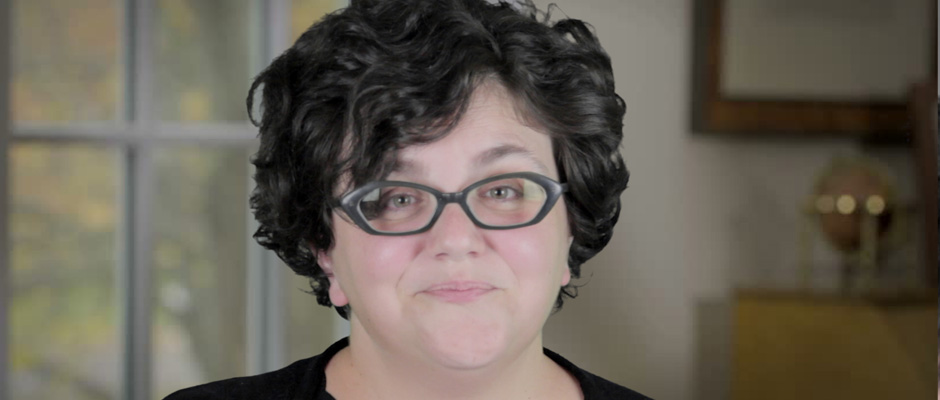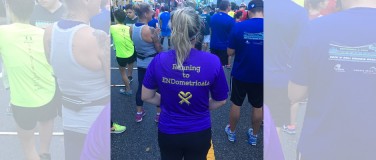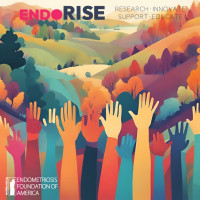Noémie Elhadad is a researcher in biomedical informatics at Columbia University. Through her Citizen Endo project she created Phendo, an app that allows women to track their endometriosis symptoms and submit them for research.
How has having endometriosis influenced your work?
I am a patient of endometriosis. I've been a patient since the age of 13. That's when my symptoms started. I was diagnosed in my late teens and had multiple surgeries. Endometriosis has affected my life personally, professionally. Every aspect of my life. It got to a point where I got fed up with my quality of life being so impacted by the disease and I decided to think about how my research could be helpful to understanding the disease better and maybe finding a cure.
What inspired Citizen Endo Project?
The whole idea behind the Citizen Endo Project is to build a data set that represents the disease the way patients experience it. This is a new thing. We don't have a good picture of endometriosis, we scientists. Patients, individually, understand what endometriosis is for themselves, maybe, most of the time, but we don't have a good research data set to work on that would show all the aspects of the disease and all the ways in which it impacts women. So Citizen Endo is asking patients directly for input from their own experience of the disease and aggregating all of these experiences to build a data set that we can do research on.
In your initial research, what was it like to conduct interest groups and focus groups face-to-face with patients?
We conducted five focus groups with women in New York City,nbv czxz with women who had endometriosis, just because we are located in New York City. It was a particularly rewarding experience. It was difficult because as a patient, I had a lot of empathy for what they were telling me. They described in great detail their struggle with the disease, but also their struggle with being understood by their doctors, with being recognized by their health care professionals, and all of this resonated heavily with me and my own experience of the disease. At the same time, it was very rewarding because the message from all these women that we interviewed, and we had focus groups with, was the same. Basically, they wanted a cure and they wanted to help research. They wanted to contribute in any way they could so that there's no more of this confusion about the disease when your symptoms start coming. They all had this image of a young woman who is starting to experience symptoms of endometriosis and doesn't know if it's normal, or if it's abnormal, if everyone is feeling like them, if they should ignore their symptoms or if they should seek care. And so that idea that women with endometriosis are willing to contribute to research was really instrumental for us and for continuing the project on Citizen Endo.
Anything in particular that you learned from working directly with patients that you don't when you just work with data?
So, traditionally, when you want to study a disease, you go to sources that have data already so you might go to insurance claims for example. You might go to patient records, so that's what your doctors are documenting about patients' care, and in the case of endometriosis, when you look at these types of data, you don't get the whole picture about endometriosis. If you look at claims data, there's information about trips to the emergency departments, and surgeries, but that's not the whole story with endometriosis. When you look at patient records, because endometriosis is not well understood, and because doctors themselves don't have a good idea about what are all the symptoms of endometriosis, they're also not really good at documenting the experience of endometriosis. And so if we want to study the disease, if we want to really understand the catalog of symptoms and the way in which different symptoms manifest in different patients, we are left with asking patients for their own experience. And so we've learned a ton just by asking patients. We have a completely different view of the disease; different from claims data, different from doctors' data.
Tell us about how the mobile app Phendo fits in the project
The Phendo app is the first and the most important project as part of the Citizen Endo umbrella project. If we want to ask patients for their experience of the disease, we need an instrument to ask these questions, and we want to have as many experiences of as many women as possible, and so the Phendo app is a good way, a good tool for us to collect all of this data. So for women who are diagnosed with the disease, or who think they have the disease, we have created this app, which is actually a research study, so when you join the app, you join and consent through a research study that is going to collect your experience of the disease. So far we have about 2,500 people who are registered and are experiencing endometriosis symptoms. That's about women from about 60 different countries in the world, so we are very happy with the number that we have already, but we want to have as many patients as we can get our hands on.
Why is the app called Phendo?
Phendo is a portmanteau word. It means phenotyping endometriosis. Phenotyping is a term that we use in biomedical informatics, in my research, to mean describing a disease. So, in the case of endometriosis, the question is, we know that there's a large prevalence to the condition. It's estimated that there is about 10 percent of women in reproductive age who have the disease, and so the primary hypothesis is that it's a heterogeneous disease, that it's not really a single type of disease but there are many sub-types to the disease, and we kind of know this already from a surgical standpoint. We know there's different ways in which the disease manifests itself in patients, but the question we have is what about the rest of the experience, right? What about signs and symptoms, response to treatments. Some women respond very well to treatment, others do not. What type of pain patterns exist in women? All of these questions are part of the activity of phenotyping a disease. So if we want to phenotype endometriosis, let's ask patients to tell us what their signs and symptoms are, what types of treatment they're taking, is it working for them or not, what their quality of life day to day, and let's identify what sub-groups of the disease are available to us.
How do you actually use the app? What is it like as patient to log on and to track your symptoms?
Sure, so the first time you log into the app, you consent to joining a research study, and so all the data that is kept as part of the app is actually stored on secure servers and it's treated like research data. As a user of the app, you can track all of the typical symptoms that you could think about endometriosis. Your pain, for example. We have about 20 to 30 different body locations that you can track for pain, which treatments, which medications for pain or for other things you've been taking, which hormonal treatments you're in, what type of self-management strategies did you try today and did it work for you that day? Also, quality of life, were you, which activities were hard to do that day, were difficult? Were you able to get out of your bed? Were you able to work, go shopping, cook, all of these daily activities that we should all be able to do if we were healthy. But then we also track things that are not typically associated in people's mind with endometriosis. So, things like all of your gi problems, or urinary issues, and your moods, your emotions, and the idea again is to be as holistic as we can in describing the disease. The way we came up with all of these variables was through the focus group and through online surveys asking the endometriosis community online to help us figure out what exactly are the most important things that we should track as patients?
How do patients join the app if they'd like to get involved and track their symptoms during the project?
Right now the app is only available on iPhones. We're actually working on an Android version. We've had many, many women asking for it and we do know it's important. We're working really hard on it but for now it's only on the iPhone, and so if you go on the iTunes store and look for Phendo, you can just download it as it is for any other app. It's free. And you can join the research through the app, by entering your name and signing and reading a consent and if you agree to do it then you can use the app.
Editors note: This interview has been edited and condensed










